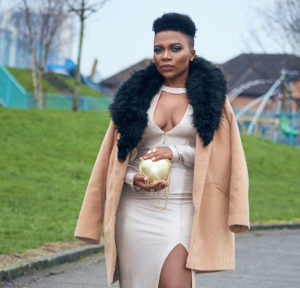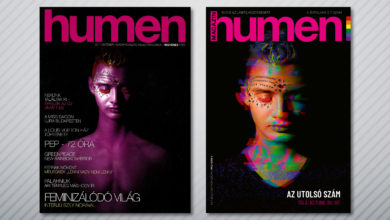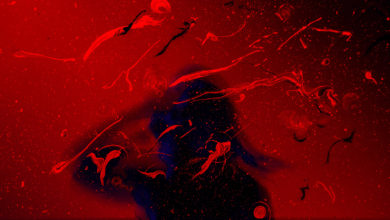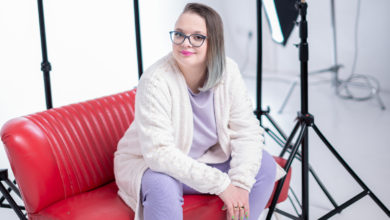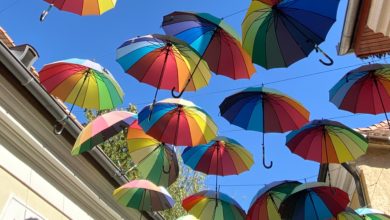“Life is not a bed of roses when you are African, black and a lesbian”
When Bandy Kiki, Cameroon’s most read blogger expressed her support for the LGBTQ community, she became the biggest enemy of her motherland. Now she lives in England where she fights for the lesbian, gay, bisexual and trans people of the African country, who still live in fear and comtempt. With the help of a lawyer, Matthew Burn, she established the Rainbow Equality Hub – the organisation that aids people who flew to England for help. Lately Kiki came out as a lesbian on her popular Instagram page. She’s safe in Europe, but in Cameroon, for openly being an LGBTQ person, she could face imprisonment, justiciary, rape or even death. We asked her about the situation of the Cameroonian LGBTQ people and their chances for a better life.
There are only two known LGBTQ people from Cameroon. You and the winner of the first season of RuPaul’s Drag Race, BeBe Zahara Benet. Why such a low number?
The reason for that is the strictness of anti-LGBT laws. If you’re caught in a same-sex sexual activity, you run the risk of being fined or imprisoned for up to 5 years. This law has led to an increase in extortion and violence against LGBT people and imposed restrictions on non-governmental organisations providing essential services to LGBT people in Cameroon. It’s imperative to note that there have been several cases of vigilante execution and corrective rape of LGBT people in Cameroon. A lot of LGBT people in Cameroon live in fear and hiding.
There have been a lot of questions about your sexuality, and several articles about you being a lesbian before you finally came out. Was there a reason you had to wait?
Oh yes. I was blackmailed for money on several occasions by people who knew about my sexuality. There was also the case of a male Cameroonian celebrity who wanted to use my sexuality to influence what I write on my blog. I wanted to be mentally stable before taking the bold step of coming out of the closet.
From what I have seen in various comments, it’s not only politics that’s homophobic. Society also has a really distorted opinion about LGBTQ people. How do you think this can change?
LGBT activists like me are seeking to change people’s point of view one at a time. However, things would be easier if churches stopped promoting hate against LGBT people in Cameroon. Approximately 70 percent of the population in Cameroon is at least nominally Christian.
As a Catholic Christian myself, it’s sad to see the constant opposition to homosexuality despite the headlines carrying the rhetorical question, „Who am I to judge?”. It still officially describes both gay people and homosexual acts as „intrinsically disordered”. The Bible and traditional values are potent weapons against LGBT rights in Cameroon.
What do you know about the closeted LGBTQ people from Cameroon?
Ever since I came out, hundreds of them have reached out to show support or share their stories. A huge amount of them have gone through traumatic experiences due to their family members who found out about their sexuality.
There was a 30-year-old guy whose story stood out. His mother found out about his sexuality when he was 16 years old. She then sought the help of a local pastor whose job was to pray with him daily and cast out the „spirit of homosexuality”. The pastor ended up sexually abusing him, and no matter what he told his mum about the incident, she wouldn’t believe him.
Can they leave the country if their situation does not improve? Indeed, is there any indication that the situation might be getting worse?
Yes, theoretically they could leave the country, but not many of them are financially capable to do so, or have a reasonable idea of what it entails to start a new life abroad.
I think the situation could go either way if those who’re against LGBTQ people face people like me coming out. I hope this will prompt them to change their attitude and be more accepting.
The HIV/AIDS situation is also very problematic in the country. What steps should be taken?
On average, Africans generally have more sexual partners than people in Western countries. Sex is a commodity and most African parents still see sex education as a taboo.
I think the government, parents and media need to emphasise the consequences of unprotected sex. Sensitisation is key! Sensitisation, sensitisation, sensitisation!
You left Cameroon years ago and now you live in Europe. The situation is much better here, but there are several cases of homophobia and racism.
The approval of same-sex relationships between black people has grown more slowly than that in any other racial group. In the black community I mostly face homophobia and sexism; and in the white community I face racism and to a lesser extent homophobia. I have also experienced racism within the LGBT community. Life is not a bed of roses when you are African, black and a lesbian.
What are your plans? Are there any projects you’d like to talk about?
I have a major project I’m working on now. Unfortunately, I can’t go into details yet. Hopefully, it will help change the way people in Africa see and think about homosexuality.
Bandy Kiki’s Instagram page: @bandykiki
Bandy Kiki’s blog: kinakkasblog.com
Ádám András Kanicsár


